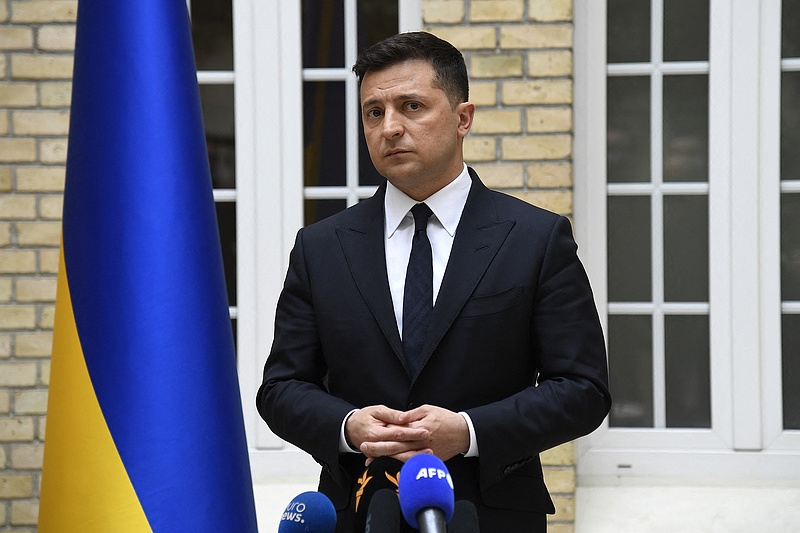White House National Security Adviser Jake Sullivan said Biden, who will meet with Russian President Vladimir Putin in Switzerland in the middle of the month, assured Zelensky of his support, MTI wrote.
“They had the opportunity to speak at length about all aspects of the US-Ukrainian relationship, and President Biden told President Zelensky that he would resolutely defend Ukraine’s sovereignty, territorial integrity and aspirations,” the national security adviser said.
Sullivan added that “Biden told President Zelensky that he looks forward to hosting the White House in Washington this summer after his return from Europe.”
The US president is scheduled to travel to Europe on Wednesday. This will be his first trip abroad since taking office. From Friday, he will attend a three-day summit of the world’s seven major industrial powers (G7) in Carbis Bay, Cornwall, southwest England, and then visit the NATO leaders’ meeting on June 14 in Brussels. Eventually, he traveled to Geneva to meet Russian President Vladimir Putin face to face.
In a weekend interview with US news portal Axios, Zelensky encouraged Bident to meet in person ahead of Putin’s scheduled summit. Experts said Monday’s phone call and Zelensky’s invitation were intended by the White House to show support for Ukraine ahead of the Geneva meeting and to indicate that it would defend the Eastern European country in its talks with Biden and Putin.
At Monday’s press conference, Jake Sullivan did not mention that the US and Ukrainian presidents would meet before the Swiss summit.
According to US press reports, the Biden administration disappointed Ukraine, as well as many Democratic and Republican lawmakers in Washington, when it announced last month that the US
And it waives sanctions against the contractor and CEO of the Nord Stream-2 gas pipeline, arguing in the states’ “national interests”. US analysts said Zelensky was “hoping” Biden would prevent the project from happening.
Nord Stream-2 is a €9.5 billion project to expand the North Stream at the bottom of the Baltic Sea with two new pipelines with a total transmission capacity of 55 billion cubic meters per year. Its route stretches from Vyborg in Russia to Greifswald in Germany. To complete the new pipeline, which is about 1,200 kilometers long, another 80 kilometers of pipelines will have to be laid. With its deployment, Russia could, in principle, exclude Ukraine as a transit country and divert 80 percent of Russian gas supplies to Europe into a single route.
Sullivan also announced that Joe Biden is expected to meet with Turkish President Recep Tayyip Erdogan next week at the NATO summit in Brussels. Talks will focus on Syria and Afghanistan and “how to deal with some of the differences between Washington and Ankara.” The National Security Adviser put it this way: “Biden and Erdogan, who have known each other for years, can’t wait to get an overview of bilateral relations.”






